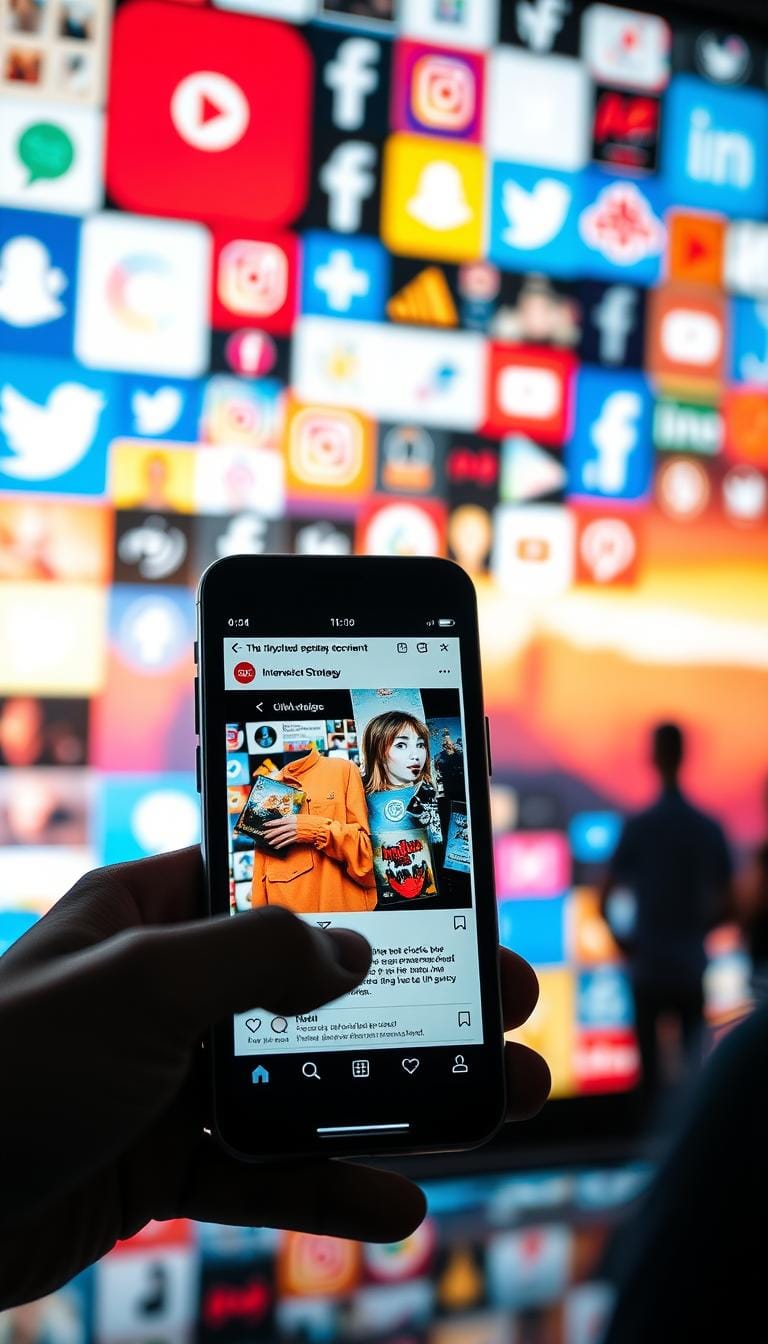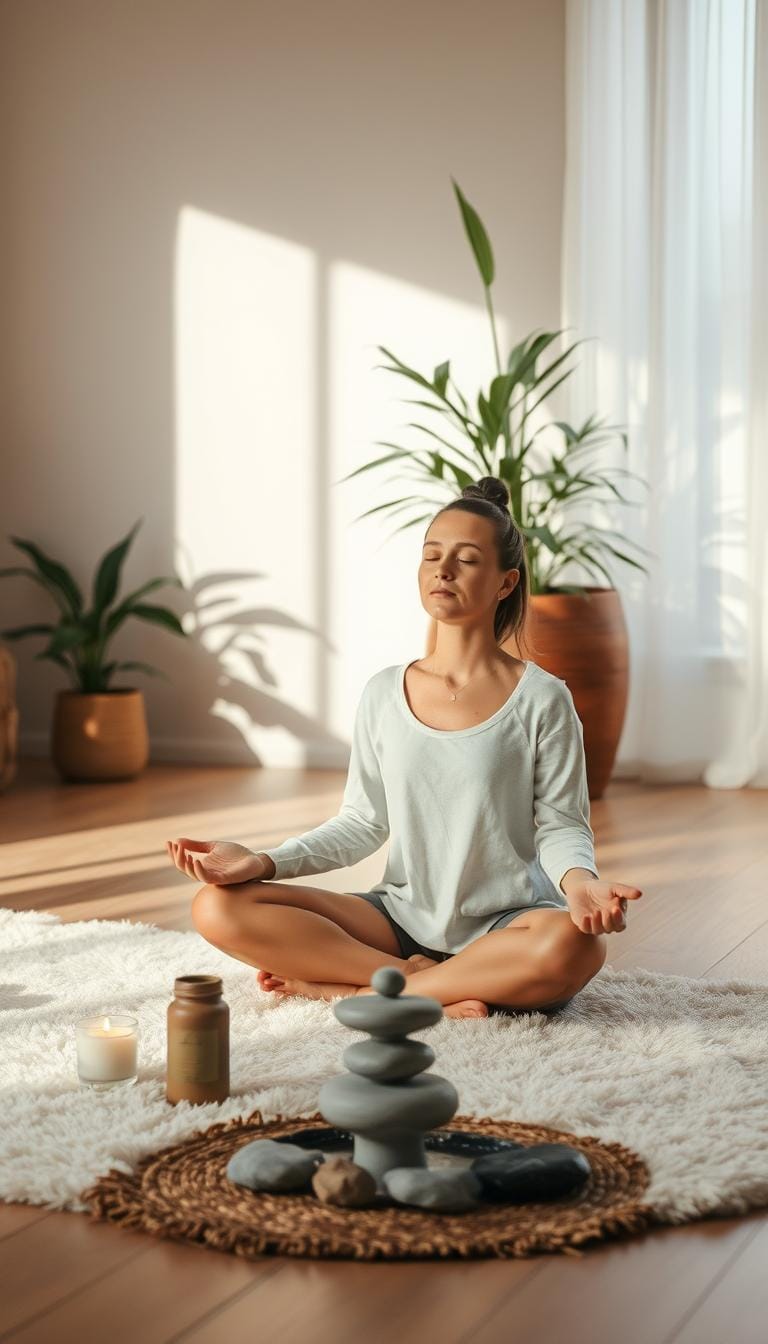Emotional Dependency: 5 Signs You’re Over-Reliant on Others
Table of Contents
When I realized my decisions were based on others’ opinions, I knew something was off. Emotional dependency is more than a phase. It’s a pattern where we rely too much on others for security. This taught me how it can make us feel small, making simple choices hard to make alone.

Many of us quietly struggle with this. Maybe you’ve canceled plans because someone frowned, or ignored your own needs to please others. Emotional reliance is not weakness—it’s a sign. It impacts our relationships, mental health, and even our energy levels.
But you’re not alone. This article will show you real signs, like fearing decisions without advice or losing your identity in others’ shadows. Let’s explore how to find balance without losing connection.
My Journey with Emotional Dependency
Recognizing emotional dependency started with small moments. For years, my choices were based on what others thought. My joy was tied to getting approval.
It hit me hard at a friend’s wedding. I couldn’t share my dreams without comparing them. This made me see how my relationship patterns were holding me back.
When I First Recognized My Dependency Patterns
I saw a pattern: always seeking approval, fearing silence, and avoiding disagreements. These habits started in childhood, when my happiness depended on others’ moods. Over time, my needs became less important than others’.
Why I Decided to Share My Experience
I wanted to show others they’re not alone. Sharing my story was a step towards personal growth. I hope it helps others feel okay about talking about their struggles.

The Turning Point in My Recovery
Therapy was the start of my change. Small steps like journaling and setting boundaries helped me. Learning to say “no” was hard but changed me. Now, I focus on emotional healing by being kind to myself and putting my needs first.
Understanding Emotional Dependency: What It Actually Means
Emotional dependency isn’t just needing someone to feel happy. It’s when your self-worth depends on another person’s actions. Imagine a seesaw: one person’s mood swings affect both. Unlike healthy emotional attachment, which balances give-and-take, dependency leans too far into one side.

| Emotional Dependency | Healthy Interdependence |
|---|---|
| Constant fear of losing the relationship | Comfort with boundaries and independence |
| Ignoring personal needs to please others | Mutual respect for individuality |
| Belief that others’ approval equals validation | Confidence in one’s own value |
Many confuse this with codependency, which often involves enabling unhealthy behaviors. But emotional dependency can show up anywhere—friendships, family, even work. For instance, over-apologizing at work to avoid criticism might stem from fearing rejection. It’s a spectrum, not a one-size-fits-all label.
- Myth: Only seen in relationships
- Myth: Requires drama to exist
- Myth: Ends once you “fix” the other person
Ask yourself: Do I feel “whole” when alone? Can I set limits without guilt? These questions highlight where your self-worth stands. Recognizing the difference between care and codependency is the first step toward balance.
The Psychology Behind Why We Become Emotionally Dependent
Understanding emotional dependency starts with looking inward and back to our earliest years. These patterns aren’t random. They’re shaped by forces we often overlook until they affect our adult relationships.
Childhood Attachment Patterns
Our first relationships shape how we connect later. If a caregiver felt distant or inconsistent, it can lead to insecure attachment styles. I grew up craving constant reassurance, a pattern I later saw in my adult relationships.
Research shows secure attachment fosters independence. Insecure styles push us toward overreliance.
Fear of Abandonment and Rejection
This fear is primal. My panic at perceived rejection felt irrational until I linked it to childhood moments of feeling “invisible.” Therapists call this fear of abandonment a survival instinct gone awry.
It drives behaviors like obsessive checking messages or begging for validation, even in healthy relationships.
Low Self-Worth and Its Impact
When I realized my self-worth depended on others, I saw how it controlled my choices. A list of my patterns emerged:
- Ignoring my needs to please others
- Believing I’d “deserve” love only if I gave 100%
- Feeling worthless without external validation
This cycle traps people in dependency. It makes them fear their own value hinges on others.
Social Conditioning Factors
| Factor | Impact |
|---|---|
| Cultural messages | “Selflessness” praised over self-care |
| Gender norms | Women taught to prioritize others’ needs first |
| Social media | Perfectionism fuels validation-seeking |
These forces normalize dependency. I saw how societal “shoulds” made me doubt my right to autonomy. Recognizing this helped me separate internal worth from external approval.
Sign #1: You Can’t Make Decisions Without Input From Others
Decision-making anxiety can make even small choices feel huge. I’d text friends every day, asking things like, “What should I wear?” or “Should I take this job?” Even choosing a restaurant became a big debate in group chats. This left me feeling drained and unsure of my own choices.
I relied on others’ opinions to avoid blame if things went wrong. “If I mess up alone, it’s my fault—but if they suggested it, maybe I’m off the hook.” I’d spend hours scrolling through TikTok polls or Reddit threads to see if my choices were right. Each time, my confidence dropped a little more.
This emotional cycle was frustrating and made me feel like a child again. I’d feel guilty over every “wrong” choice. But slowly, I started to regain my self-reliance. Now, I:
- Start with tiny decisions (e.g., “I’ll pick lunch alone today”).
- Set a 24-hour “no advice” rule before asking for input.
- Remind myself: mistakes are learning tools, not failures.
Autonomy in relationships means trusting your own voice, even when others have opinions. It’s about practice, not being perfect.
Sign #2: Your Mood Depends Entirely on Someone Else’s Approval
Feeling emotionally tied to others can make your mood swing wildly. When my self-worth was tied to validation, every little thing mattered. Here’s how it affected me:
The Emotional Rollercoaster Effect
I’d spend hours thinking about what others thought of me. A simple delay in reply could make me doubt myself. Seeking approval made even small talks feel like big deals. A simple “lol” could lift my spirits, but a “never mind” could crush me.
How This Affected My Daily Life
I’d cancel plans to avoid bothering others, then feel bad about it. At work, I’d hesitate to share ideas until someone praised them. My life was all about guessing how others felt, checking messages constantly and avoiding any conflict.
The Physical Symptoms I Experienced
My body showed the stress too. I’d get stomachaches before meetings and couldn’t sleep over unanswered calls. I even lost weight from skipping meals when I was stressed. My health was a clear sign of how much I cared about being liked.
Sign #3: You Prioritize Others’ Needs at the Expense of Your Own
At first, I always said “yes” to others, ignoring my limits. This made me confuse being kind with being worthy. It drained my energy and made it hard to focus on my goals.
The Self-Sacrifice Trap
I started with small acts of kindness, like volunteering or working late. But soon, these acts became a cycle of neglect. I thought I was being a good friend or helping out, but I was ignoring my own needs.
When Helping Others Becomes Harmful
- Resentment grew as I took on tasks I didn’t want to do.
- Enabling others by solving their problems instead of letting them learn.
- Burnout from never setting personal boundaries.
I once stayed up all night to fix a coworker’s mistake, only to see them take credit. I thought it was worth it to keep the peace. But it kept me trapped in people-pleasing.
Recognizing Your Own Needs Matter
Learning to rely on myself started with small steps. Saying no without feeling guilty was a big one. I started journaling to track when I put others first. Over time, I learned to say “I choose to” instead of “I can’t.”
Setting boundaries, like time for hobbies or therapy, became essential. Today, I know that taking care of myself isn’t selfish. It’s necessary. By being self-reliant, I’ve built stronger, healthier relationships based on respect.
Sign #4: You Have an Intense Fear of Abandonment or Rejection
My journey with emotional dependency showed me how my fear of abandonment controlled my choices. This fear wasn’t just worry—it was overwhelming. I’d check texts all the time, apologize for nothing, or avoid talking about anything.
These actions came from my childhood attachment styles. Unstable relationships shaped me, making me think rejection meant the end of everything.
I fell into traps like clinginess (texting nonstop for reassurance), preemptive rejection (pushing people away), or silent treatment in fights. I even convinced myself that honesty would lead to being left.
Healthy relationships are built on trust, not fear. Feeling nervous before a date is normal. But emotional dependency makes this fear extreme.
| Normal Concern | Fear of Abandonment |
|---|---|
| Feeling upset if plans change | Panic when someone cancels |
| Confidence in your worth | Believing “I’m unlovable” |
| Ability to comfort yourself | Need for constant external validation |
Emotional healing started when I learned to pause before reacting. I used grounding techniques, like naming five things I see, to stop panic. Challenging negative thoughts helped change my mind.
Recovery isn’t always easy, but small steps help. They help you trust yourself again.
Sign #5: You’ve Lost Your Sense of Individual Identity
When I couldn’t name my favorite book or career goals without thinking of someone else, I knew I was losing myself. Emotional dependency makes it hard to tell “me” from “us.” It turns our choices into echoes of others.
When “We” Replaces “I”
I started doing things just because my partner liked them. I gave up art classes for hiking. My hobbies, values, and even jokes became like theirs. This isn’t teamwork; it’s losing your way. Do you always say what someone else wants?
How I Reclaimed My Identity
Getting back to myself took bravery. I started doing hobbies I’d left behind by myself. I wrote letters to myself about my dreams. It was scary, but hearing my own voice again was worth it.
Feeling grief was hard, but it was also a relief to stop putting others first. It was a step towards being true to myself.
Building Self-Discovery Practices
- Journal daily: “What did I enjoy today, just for me?”
- Carve out solo time weekly—no texts, no calls, just you.
- Use value-sorting exercises: Rank priorities like “creativity” vs. “security” to clarify core beliefs.
Being independent in relationships isn’t selfish. It’s key to strong partnerships where both people choose each other fully. My journey showed me that self-discovery is the first step to real connection.
Breaking Free From Emotional Dependency: The Steps I Took
My journey to emotional independence started with small steps. Here’s how I changed my life:
- Identify Triggers: I tracked when I looked for others’ approval. Keeping a journal showed me patterns.
- Therapeutic Tools: I used cognitive-behavioral techniques to change my thoughts. Inner child work helped heal wounds from childhood.
- Practice Mindfulness: Daily meditation helped me handle discomfort without reacting to fear.
| Stage | Action | Outcome |
|---|---|---|
| 1. Awareness | Tracking dependency triggers | Clarity on emotional patterns |
| 2. Action | Therapy + mindfulness | Building self-reliance |
| 3. Growth | Support networks + self-compassion | Sustainable personal growth |
Setbacks happened, like falling back into old habits after a breakup. I was kind to myself, using tools that worked before. Letting go of the idea of a “perfect relationship” was part of healing. I learned to care for myself instead of looking for approval from others.
Recovery isn’t always straight, but you can make progress. These steps helped me find my true self. Every choice toward emotional independence made me stronger and more whole.
Conclusion: Embracing Healthy Interdependence While Maintaining Autonomy
My journey showed me that emotional independence and interdependence can go hand in hand. Healthy relationships work when both people respect each other’s space. I now make choices that reflect my values, which strengthens my closest bonds.
Interdependence isn’t the same as codependency. It means supporting others while keeping your own identity. My career grew when I stopped fearing rejection. Autonomy and connection can grow together, not against each other.
Healthy relationships need honesty about personal needs. I learned to set boundaries without feeling guilty. My friendships grew deeper because of it. Fear of change is normal, but healing leads to deeper trust.
If you see these patterns, remember: emotional independence isn’t about being alone. It’s about building interdependence where mutual respect is key. The journey is hard, but being yourself creates relationships that honor your worth.
You don’t have to choose between being connected and being independent. Healthy relationships start with valuing your own needs first. Take small steps, and let interdependence grow naturally. The journey is worth it for your creativity, decisions, and the life you deserve.






